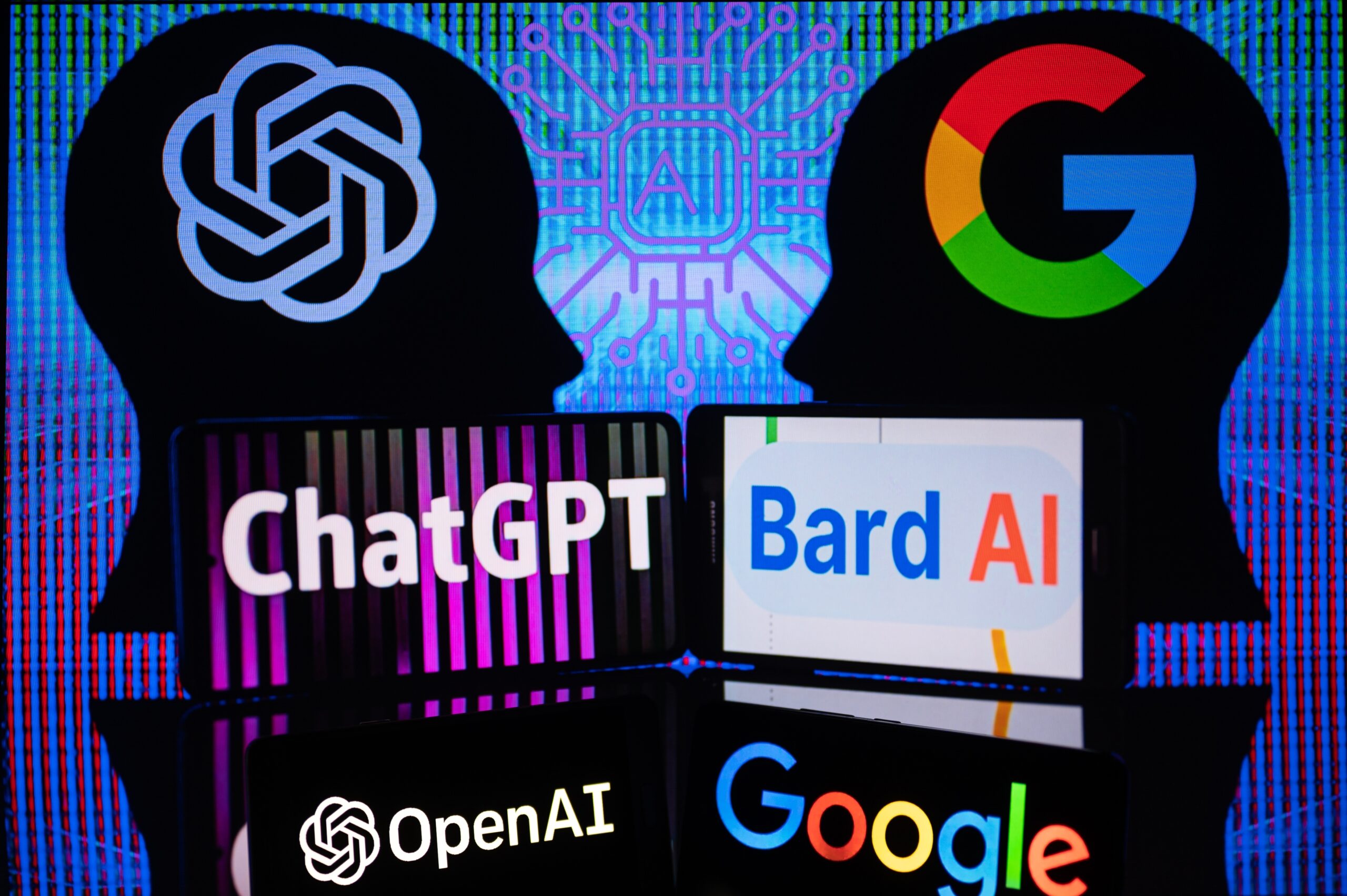When OpenAI’s ChatGPT hit the market in November 2022, not everyone was convinced the generative AI chatbot would upend search and conventional content creation.
One year later, AI has spawned a whole multi-billion-dollar industry pitting all of the biggest names in the technology sector: Google, Microsoft, ByteDance, Amazon, and others.
The year 2023 marked a watershed moment for generative AI, a type of artificial intelligence technology that, as the name suggests, can generate a myriad of content forms like text, images, and audio.
Models like Google’s Bard and ChatGPT captivated audiences with their ability to hold nuanced conversations, write poetry, code, and even compose music. But the progress came with a dark side: AI’s potential for misuse, privacy breaches, misinformation, and bias.
Also read: Woke AI Refuses to Identify Marilyn Monroe
AI drives creative expression
While Microsoft had Bing AI and ByteDance released Ernie Bot, it was Bard and ChatGPT that dominated the generative AI chatbot space. According to some estimates, ChatGPT saw a total of 14.6 billion visits, accounting for 60% of traffic within the top 50 AI platforms.
By the end of August, Bard had had total visits of 242 million since its launch six months earlier. There were other popular AI tools: Character AI (3.8 billion visits), image creator Midjourney (500 million), writing assistant Quillbot (1.1 billion), and data science AI HuggingFace (316 million).
Both Bard and ChatGPT stood out in tasks like generating different creative text formats, translating languages, and answering open-ended questions. It was inevitable that businesses would start looking at how they could use AI to improve efficiency and make money.

For example, Microsoft, which invested over $13 billion in OpenAI, integrated the startup’s GPT-4 technology into most of its products, like the Edge browser, Word, and Office. Amazon is using AI to weed out scam reviews on its e-commerce platforms.
It is not clear whether these companies and many others that have leveraged artificial intelligence are turning a profit from using the technology. But for OpenAI, ChatGPT is expected to bring in up to $1 billion in revenue this year, as MetaNews previously reported.
In education, school administrators in the U.S. are reversing earlier measures banning students from using ChatGPT in their studies. Now, leaders want students to prompt the AI to answer questions, just as they would with Google search queries.
In 2023, generative AI has been lauded for its uncanny ability to drive creative expression, blurring the lines between human and machine authorship. News outlets toyed with AI-powered content creation, with disastrous outcomes for the likes of CNET.
Even the art world felt the impact, with AI artwork selling for millions at auctions. One notable artistic creation by a human using artificial intelligence is that of Ghostwriter, who created a song featuring the AI-generated voices of Drake and The Weeknd.
The song “Heart On My Sleeve” went viral on TikTok soon after its release in April, racking up more than 230,000 plays on YouTube and over 625,000 plays on Spotify. Ghostwriter felt so good about his ‘creation’ that he entered the song for next year’s Grammys. It was rejected for a lack of originality and copyright infringement.

The controversy
At this point, generative AI is flying high. But the novel technology could not evade the shadows cast by the challenges baked into it. Soon, concerns about misinformation grew as the AI models were found to be adept at creating convincing but entirely fabricated material.
The tech industry calls these sorts of confident lies “hallucinations.” Microsoft’s Bing AI Chat lost it completely earlier this year, and a U.S. lawyer got into trouble after citing false information that he got from ChatGPT. There are many examples of AI hallucinating.
Researchers highlighted the inherent biases present in the data used to train AI systems like ChatGPT, leading to responses that perpetuate stereotypes. For example, an AI meme maker filter on TikTok came across as fatphobic, telling a plus-size woman, “You need a bigger beach.” Some AI has even been accused of racism.
Perhaps the most chilling aspect of generative AI lies in its use for malicious activities. Deepfakes, realistic video and audio forgeries, have raised concerns about privacy, abuse, political manipulation, and the erosion of trust in online media.
At the individual level, AI deepfakes have been used by bad actors to create pornographic material, often targeting celebrities like Taylor Swift and Emma Watson but also innocent school children. And police cannot do anything about it, according to some victims.
The ability to create persuasive, yet fake, content could have damaging consequences in areas like journalism, social media, and politics. Meta has had to place restrictions on AI deepfake ads placed on its platforms like Facebook and Instagram.
it is very disappointing to see the FTC's request start with a leak and does not help build trust.
that said, it’s super important to us that out technology is safe and pro-consumer, and we are confident we follow the law. of course we will work with the FTC.
— Sam Altman (@sama) July 13, 2023
Regulators around the world have responded by enacting laws that seek to ensure AI is developed “responsibly.” The European Union’s AI Act is the latest example. In the U.S., President Joe Biden’s recent executive order aims to implement safeguards against AI misuse and watermark AI content to curb deepfakes.
For AI, the year 2023 proved to be both a period of groundbreaking advances and sobering caution. With tech companies now angling for multimodal AI wearables, it remains to be seen just how far humans could go in pushing the boundaries of technology in 2024.









 and then
and then